Summertime is a great time to be outside gardening and enjoying the fruits of your labor. However, if you’re like most people, one of your biggest headaches is dealing with pesky flies. Flies can quickly ruin an outdoor party or get in the way while you’re trying to work in your garden. In this article, we will discuss how to get rid of flies in vegetable gardens using natural methods that are safe for both you and your plants!
What Are Garden Flies
Garden flies are small, dark-colored flies that often congregate in large numbers near sources of food. They are attracted to ripened fruits and vegetables, as well as garbage and animal feces.
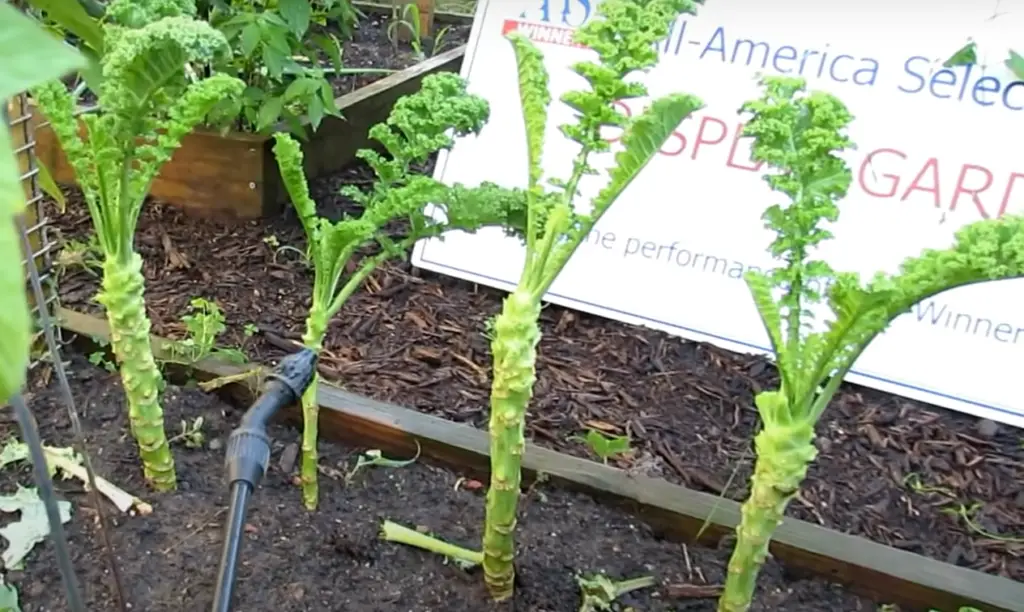
Garden flies can be more than just a nuisance.
They’re attracted to the same things we are: sweet fruits and vegetables, damp soil, and decaying matter. But while we might enjoy a juicy peach or tomato, all a fly sees is a potential breeding ground for its larvae.
Adult female flies lay their eggs on overripe fruit or veggies, in compost piles, or anywhere else they can find moist organic matter. The resulting larvae tunnel into the produce and feast on it from the inside out. This not only ruins your food but also provides an entry point for other pests and diseases.
Even if you don’t grow fruits or vegetables, garden flies can still be a problem. They’re attracted to the same conditions that promote fungal growth on your plants. If you have damp soil or mulch around your plants, chances are you also have some garden flies taking up residence.
Types of Garden Flies
If that’s not enough to gross you out, there are actually several different types of garden flies out there. Each type of fly has its own unique habits and preferences, but they all have one thing in common: they’re attracted to damp, decaying organic matter. This includes overripe fruits and vegetables, as well as compost piles and manure. If you have any of these things around your home, chances are you also have some garden flies.
Tachinid Flies
One type of garden fly that you may encounter is the tachinid fly. These flies are particularly attracted to ripe and decaying fruits, as well as vegetable plants that are starting to wilt. If you’ve ever found a fly larva in your fruit, it was probably a tachinid fly.
Tachinid flies lay their eggs on other insects, including bees, beetles, and caterpillars. When the eggs hatch, the larva will burrow into the host insect and feed on it from the inside out. This sounds like something straight out of a horror movie, but it’s actually a very effective way for the tachinid fly to ensure that its young have plenty of food. [4]
Fungus Gnats
Fungus gnats are tiny, dark-colored flies that congregate around damp soil or potting mix. They’re especially fond of seedlings and young plants, which they often damage by feeding on the tender roots. If you have a problem with fungus gnats, you’ll probably notice small colonies of them near your houseplants or in your vegetable garden.
These pests are more of a nuisance than anything else, but they can become a real problem if left unchecked. In large numbers, they can quickly kill seedlings and young plants by sucking the moisture out of their roots. [2]
Cabbage Worms
Cabbage worms are the larvae of a type of butterfly known as the cabbage white. As their name suggests, they’re especially fond of cabbage and other brassica plants, but they’ll also feed on tomatoes, potatoes, and peas.
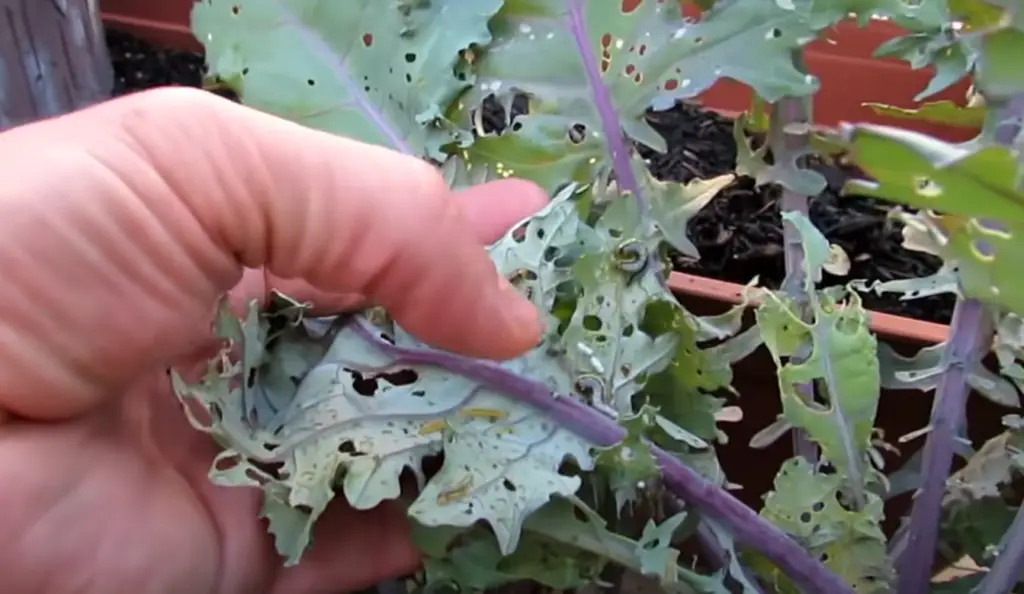
Cabbage worms are smooth, green caterpillars that can reach up to one inch in length. They have a voracious appetite and will quickly strip a plant of its leaves if given the chance.
These pests are difficult to control because they have so many natural predators. Birds, wasps, and ladybugs all enjoy feasting on cabbage worms, so it’s best to let them do their job. [2]
Blackflies
Blackflies are small, black insects that are often mistaken for houseflies. They’re commonly found near ponds and streams, where they lay their eggs in the water. Blackfly larvae are known as “buffalo gnats,” and they feed on aquatic plants. When they mature into adults, they emerge from the water and begin to feed on the blood of animals, including humans. In some areas, blackflies can be a major nuisance because of their painful bites. They are also known to carry diseases, so it’s important to avoid them if possible. [2],[5]
Getting Rid of Garden Flies
Now that you know a little bit more about these pesky pests, you’re probably wondering how to get rid of them. The good news is that there are a few simple steps you can take to reduce the population of garden flies in and around your home. In this section we will take a look at both toxic and nontoxic methods of fly control.
Clean your garden
As with any pest problem, the best way to get rid of garden flies is to prevent them from getting into your home in the first place. Keep your garden clean and free of food scraps, and make sure to take out the trash on a regular basis. If you have a compost pile, make sure it’s located far away from your house.
You should also keep an eye out for potential breeding sites, such as stagnant water or piles of manure. If you find any, make sure to dispose of them properly. [1],[3]
Get Rid of Food Sources
You should also get rid of garden flies to remove their food sources. This means getting rid of overripe fruits and vegetables, as well as any other decaying organic matter. If you have a compost pile, make sure it’s covered so that the flies can’t get to it. You should also clean up any spilled bird seed or pet food, as these can attract flies.
Another good way to reduce the population of garden flies is to keep your garbage cans clean and tightly sealed. Flies are attracted to the smell of garbage, so they’ll often congregate around trash cans that aren’t properly sealed.

If you have animals, make sure their feces are removed on a regular basis.Manure is a great breeding ground for flies, so it’s important to keep it away from your home. [1],[3]
Clean Your Pipes
Don’t forget to clean your drains and gutters on a regular basis. Flies are attracted to damp, dark places, so they often lay their eggs in drains and sewage pipes. If you have a fly problem, chances are there’s something rotting in your pipes.
The first step is to pour some boiling water down all of your drains.This will kill any eggs or larvae that are present. Next, mix up a solution of equal parts bleach and water, and use it to scrub all of your drains clean. This will remove any remaining residue that might be attracting flies. Finally, make sure to keep your drains dry by using a drain cover or plugging them when they’re not in use.
Mix Companion Plants
One of the best ways to get rid of garden flies is to mix companion plants.
Some plants, like marigolds and basil, produce chemicals that repel pests. Others, like nasturtiums, attract beneficial insects that prey on garden pests. By mixing these plants together in your garden, you can create an environment that’s hostile to garden flies and other pests.There are many different companion plants that can be used to control garden flies. Some of the most effective include: marigolds, basil and garlic. [1],[2],[3]
Utilize Fruit Fly Traps
If you’re dealing with a small infestation, you can get rid of fruit flies by using traps. There are a variety of different traps you can use, but they all work by using sweet bait to lure the flies into a container where they can’t escape. Once they’re inside, they will either drown in the liquid or be unable to fly out and will eventually starve to death.
You can make your own fruit fly trap by filling a jar with cider vinegar or wine and adding a drop of dish soap. The dish soap breaks the surface tension of the liquid, which prevents the flies from being able to land on it. You can also add a piece of ripe fruit or some sugar water to attract more flies.
If you want to save the hassle of making your own trap, there are a variety of commercial traps available.
Once you’ve caught a few fruit flies, you can dispose of them outside or in the trash. Just make sure to empty the trap regularly so it doesn’t become a breeding ground for other insects.
Spray Vinegar Water Solution Around Your Garden
Vinegar is a natural fly repellent that can be used to keep these pests away from your plants. To make a vinegar spray, simply mix equal parts water and vinegar in a spray bottle.Then, mist the solution around your garden once or twice a week.This will create an unpleasant environment for flies, and eventually they’ll find someplace else to live.[1]
Use Diatomaceous Earth
Diatomaceous earth is a naturally-formed sedimentary mineral rock. It’s derived from the remains of marine phytoplankton that have fossilized over time. When ground up, these fossils can be used as a powder.
The tiny particles in diatomaceous earth are sharp, and they cut through an insect’s exoskeleton. causes the insect to dehydrate and die. Diatomaceous earth kills insects by physical means, rather than chemical means. That makes it safe to use around children and pets.
DE is an organic way to control pests in your garden! You can use it on aphids, caterpillars, thrips, whiteflies, and many other common garden pests.
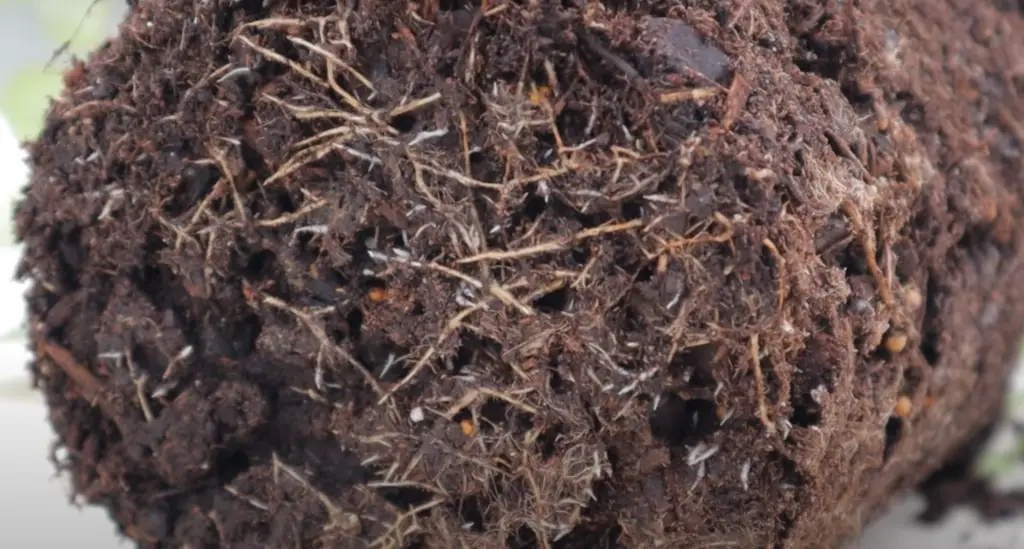
To use diatomaceous earth in your garden, simply sprinkle it on the leaves of plants that are infested with insects. You can also create a barrier around your plants by sprinkling DE on the ground around them. Be sure to reapply after rain or irrigation. [1]
Spray Liquid Dish Soap and Water Solution
An effective way to kill adult flies is to spray them with a solution of liquid dish soap and water. The dish soap will break the surface tension of the water, causing the flies to die.
To make this spray, simply mix equal parts water and dish soap in a spray bottle. Then, mist it on any adult flies that you see in your garden.
Once you’ve sprayed the solution on the adult flies, be sure to dispose of them properly. You can either sweep them up and throw them away or squish them with your fingers. [1],[2]
Use an Eco-Friendly Pesticide
If you’re looking for a safe and effective way to get rid of garden flies, consider using an eco-friendly pesticide. There are a number of natural pesticides on the market that are made from ingredients like neem oil and citronella. These products are safe to use around children and pets, and they’re just as effective as chemical pesticides.
When choosing an eco-friendly pesticide, be sure to read the label carefully. Some products are only meant to be used on certain types of insects, so you’ll want to make sure you’re using the right product for your needs. Also, pay attention to the application instructions, as some products need to be mixed with water before they can be used.
Eco-friendly pesticides are a great way to get rid of garden flies without harming the environment. [1],[2],[3]
Use a toxic insecticide
If you’re dealing with a more serious infestation, you may need to resort to using toxic chemicals. There are a variety of insecticides that can be used to kill garden flies, but they should be used as a last resort. Insecticides can be harmful to both humans and animals, so it’s important to use them only when necessary.
Some products are only meant to be used in certain ways, and using them incorrectly can be dangerous. Also, be sure to keep children and pets away from the area while you’re applying the insecticide.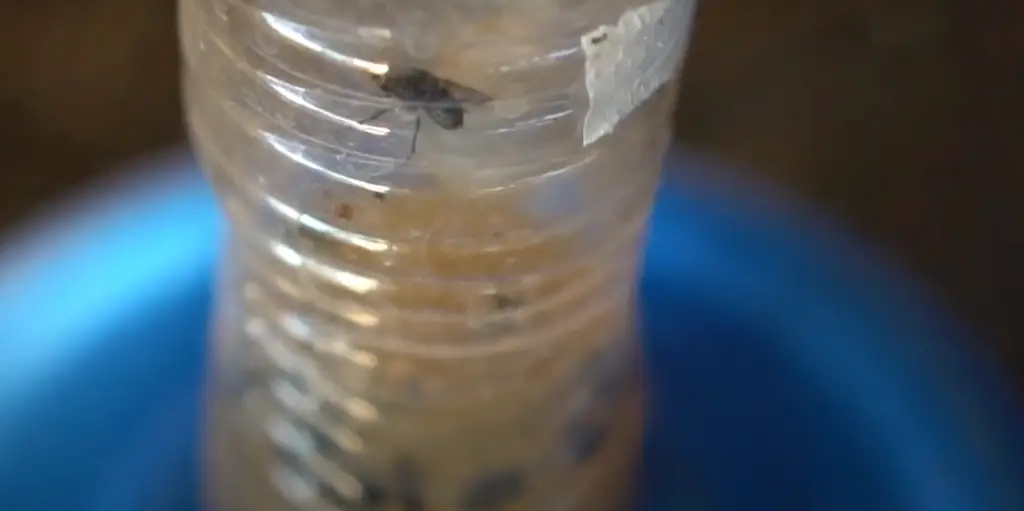
You should also avoid using insecticides near food crops.If you’re dealing with an infestation in your vegetable garden, it’s best to remove the affected plants and destroy them. That way, you can be sure that the insecticide won’t end up in your food. [3]
Comparison of Methods to Get Rid of Flies in Vegetable Garden
Flies can be a major nuisance in vegetable gardens, as they can contaminate produce and spread disease. There are various methods to control or eliminate flies in vegetable gardens, each with its own advantages and disadvantages. In this table, we will compare the effectiveness, cost, and ease of use of four commonly used methods.
| Method | Effectiveness | Cost | Ease of Use |
|---|---|---|---|
| Sticky Traps | Low to Moderate | Low | Easy |
| Netting | Moderate | High | Moderate |
| Insecticidal Soap | Moderate to High | Low to Moderate | Easy |
| Bacillus thuringiensis (Bt) | High | Low to Moderate | Easy |
Explanation:
- Sticky Traps: These are adhesive surfaces that capture flies when they land on them. They are low in effectiveness but are inexpensive and easy to use.
- Netting: This involves covering the vegetable garden with a fine mesh net that prevents flies from entering. This method is moderate in effectiveness, but can be costly and requires some effort to install and maintain.
- Insecticidal Soap: This is a type of soap that kills flies upon contact. It is moderate to high in effectiveness, relatively inexpensive, and easy to use.
- Bacillus thuringiensis (Bt): This is a naturally occurring bacterium that is toxic to flies. It is highly effective, low to moderate in cost, and easy to use.
Overall, the effectiveness, cost, and ease of use of each method should be considered when choosing a method to get rid of flies in a vegetable garden.
FAQ
Why are flies around my vegetable garden?
There are a few reasons that flies might be congregating around your vegetable garden. One possibility is that there is something attracting them to the area, such as food or garbage. Another possibility is that there is standing water in the garden, which can provide an ideal breeding ground for flies. Finally, it could be simply because your garden is located in an area where there are a lot of flies.
Are garden flies harmful?
Certain species of flies are known to transmit diseases to humans and animals. The most common problems caused by garden flies include eye infections, food poisoning, and intestinal disorders.
Even if a fly doesn’t cause disease, its presence can still be a nuisance. They’re attracted to food and garbage, which means they can damage the plants in your garden.
How do you get rid of flies without harming plants?
There are a few ways to get rid of flies in your garden without harming your plants. One way is to grow fly-repelling plants, such as basil, lavender, and marigolds. You can also make a DIY fly trap out of a plastic bottle or try using store-bought traps. Finally, you can use an organic insecticide made with neem oil or essential oils.
Why are there lots of flies in my garden?
There are a few reasons why you might be seeing lots of flies in your garden. One possibility is that your garden is located near a source of food for flies, such as a landfill or sewage treatment plant. Another possibility is that there is something in your garden that is attracting flies, such as overripe fruit or vegetables, pet food, or standing water. Whatever the reason, getting rid of flies in your vegetable garden can be a challenge.
How do I get rid of flies in my garden naturally?
There are a few things you can do to eliminate flies naturally. One is to make sure there is no standing water anywhere on your property. Flies are attracted to standing water, so eliminating any potential breeding grounds will help reduce the fly population.
You can also try planting certain herbs and flowers that repel flies. Some examples include basil, lavender, marigolds, and citronella grass. Planting these around the perimeter of your garden should help keep flies away from your plants.
Finally, you might use a plastic bottle or jar to construct a fly trap. Fill it with some sweet liquid like honey or fruit juice, then add a drop or two of dish soap. Flies will be drawn to the delicious drink, but once they touch down in the trap, they won’t be able to flee.
What is the fastest way to get rid of fruit flies in the garden?
There are a few techniques to eliminate fruit flies in your garden fast. First, make sure that there is no food or water source for them. This means cleaning up any spills and keeping your fruits and vegetables covered.
Next, you can try traps. There are many different kinds of traps you can use, but one of the most effective is a vinegar trap. To make this trap, simply mix equal parts of vinegar and water and set it out where the fruit flies are congregating.
You can also try insecticides, but be sure to follow the directions carefully so that you don’t harm your plants.
Why do I have lots of flies in my garden?
There are a few reasons you might be seeing an influx of flies in your garden. One possibility is that your plants are attracting them. Flies are attracted to rotting fruit and vegetables, so if you have any overripe produce sitting out, that could be attracting them. Another possibility is that there’s something else in your garden that’s attracting flies, like a compost pile or pet food bowl. If you’re not sure what’s attracting the flies, try doing a little detective work to figure it out. Once you know what’s attracting them, you can take steps to get rid of it.
Another reason you might have lots of flies in your garden is because the weather is warm and humid. Flies thrive in these conditions, so if it’s been particularly hot and sticky lately, that could be why you’re seeing more of them.
Finally, it’s also possible that you have a fly problem because there are other pests in your garden. If you have aphids or whiteflies, for example, they can attract flies. So if you’ve noticed an uptick in flies, it’s worth checking your plants for other pests.
Does vinegar keep flies away?
Yes, vinegar is an effective fly repellent. Vinegar can be used in different ways to keep flies away from your home and garden. You can use it as a spray, or you can soak rags in vinegar and place them around your affected areas.
Vinegar is especially effective at getting rid of fruit flies. To make a fruit fly trap, mix vinegar and water in a bowl or jar. Add a drop of dish soap to the mixture and stir well. Place the bowl or jar near where you’ve seen fruit flies and wait for them to be attracted to the mixture.
You can also use white vinegar to clean surfaces and get rid of fly eggs and larvae. Mix equal parts white vinegar and water in a spray bottle and use it to wipe down affected areas. Be sure to throw away any garbage or food that’s attracting flies in the first place.
What smell will keep flies away?
There are a few smells that flies hate:
- Peppermint
- Eucalyptus
- Lavender
- Citronella
- Lemongrass
- Basil
You can make your own fly spray by mixing some essential oils with water in a spray bottle. Or, you can buy ready-made fly sprays that contain these essential oils. Flypaper is another option. You can make your own by coating strips of paper with a sticky substance like honey or molasses, then hang them up around your garden.
What can I spray outside to keep flies away?
There are many things you can spray outside to keep flies away. You can use a fly repellent or insecticide. You can also use a homemade solution of vinegar and water. Fill an empty spray bottle with a mixture of dish soap, water, baking soda, and vinegar to create your own fly repellent. Apply this solution to any areas where you see flies. You can also use it as a prevention measure.
Make a fly trap out of a plastic bottle or use a commercial fly trap. You can also hang strips of fly paper around your garden. Finally, you can sprinkle diatomaceous earth around the perimeter of your garden. This will kill any flies that come into contact with it.
Does Irish Spring soap repel flies?
Yes, Irish Spring soap can help repel flies. The scent of the soap helps to keep them away, and the soap can also help to remove any existing fly populations. Irish Spring soap consists of natural ingredients, which makes it safe to use around vegetables.
To use Irish Spring soap as a fly repellent, mix 1 cup of soap with 2 cups of water. Then, pour the mixture and spritz it around your vegetable garden. Reapply it every few days, or as needed. Place a few drops of essential oils in the solution for extra bug-repelling benefits.
How do you use cinnamon to get rid of flies?
Cinnamon is a great way to keep flies out of your garden. All you need to do is sprinkle some cinnamon around the perimeter of your garden. An essential oil can also be added to enhance the mixture.
Another great way to use cinnamon is to make a fly trap. To do this, simply mix equal parts water and sugar in a bowl and add a few sticks of cinnamon. Place the bowl near where you think the flies are coming from and they will be drawn to it and trapped inside.
How do you make homemade fly repellent?
There are a few different recipes you can try for homemade fly repellent. One popular option is to mix apple cider vinegar and water in a 50/50 solution and put it in a spray. Add essential oils like lemon or eucalyptus oil to the mixture for extra fly-repelling power. Another option is to make a sugar water trap by mixing sugar and water in a ratio of about two tablespoons of sugar per cup of water. Once flies start congregating around the sweet solution, they’ll get stuck and drown.
You can also take some preventative measures to keep flies from taking over your garden in the first place. Ensure you’re regularly cleaning up any rotting fruit or vegetables, as flies are attracted to the sweet smell of decaying matter. You should also keep your garbage cans tightly sealed to avoid attracting flies with the scent of food waste. And finally, make sure you’re watering your plants regularly – dry soil is a breeding ground for fruit fly larvae.
Do lemons keep flies away?
Lemons are a great natural way to keep flies away. Lemons emit a strong citrus smell that flies hate. You can either slice up a lemon and place it around your home, or make a lemon fly spray by equally mixing water and lemon juice in a spray bottle.
Another great way to use lemons is to make a lemon vinegar trap. All you need is some sugar, water, white vinegar, and of course, lemons! The sugar will attract the flies and then they will drown in the mixture.
To make this trap, simply mix together 1 cup of sugar, 1 cup of water, and 1 cup of white vinegar. Then, add in the juice of two lemons. Place this mixture in a jar or container with a lid and poke some small holes in the top. Place the trap where you’ve seen the most flies and wait for them to be caught!
Does onion keep flies away?
Onions are great for keeping flies away from your garden. Try planting onions around the perimeter. You can also try hanging onions in bags around your garden area.
Another option is to make a fly trap with an onion. Cut an onion in half and place it in a jar or container with some sugar water. Flies are attracted to the sweetness of sugar water, so they will drown in onion halves. Check the trap regularly and dispose of the onions when they are full of flies.
Does orange keep flies away?
Yes, it does. Flies are attracted to the smell of oranges, so placing a few oranges around your vegetable garden will help keep them away.
You can also make a fly repellent by mixing orange juice and water. Spray this mixture around your garden to repel flies.
If you have a problem with flies in your house, you can place a bowl of orange peels in each room. The insects will be attracted to the smell of the oranges and they will stay away from your food.
Orange is not the only fruit that keeps flies away. Other fruits such as lemon, grapefruit, and lime also work well as fly repellents. You can use any of these fruits in the same way as oranges for keeping insects away from your vegetable garden.
Useful Video: 10 Organic Ways to Control Pests in the Garden
Final words
Garden flies can indeed become a nuisance. They can carry diseases and contaminate food. However, there are a few things you can do to get rid of them. One of the most important things to remember is that cleanliness is key. A well-maintained garden will be less attractive to flies than one that is neglected. To deal with existing fly populations, consider using traps or insecticides. And finally, don’t forget to take preventive measures to keep flies away in the first place. By following these simple tips, you can enjoy a fly-free garden all season long! Thanks for reading! We hope this article was helpful in answering your questions about how to get rid of flies in vegetable gardens. If you have any additional tips or tricks that have worked well for you, please share them in the comment section below!
References:
- https://gardeningelsa.com/get-rid-of-fruit-flies/
- https://www.gfloutdoors.com/vegetable-garden-flies-how-to-get-rid-of-flies/
- https://www.webmd.com/food-recipes/how-get-rid-fruit-flies
- https://www.webmd.com/food-recipes/how-get-rid-fruit-flieshttps://education.mdc.mo.gov/discover-nature/field-guide/parasitic-flies-tachinid-flies
- https://extension.entm.purdue.edu/publichealth/insects/blackfly.html





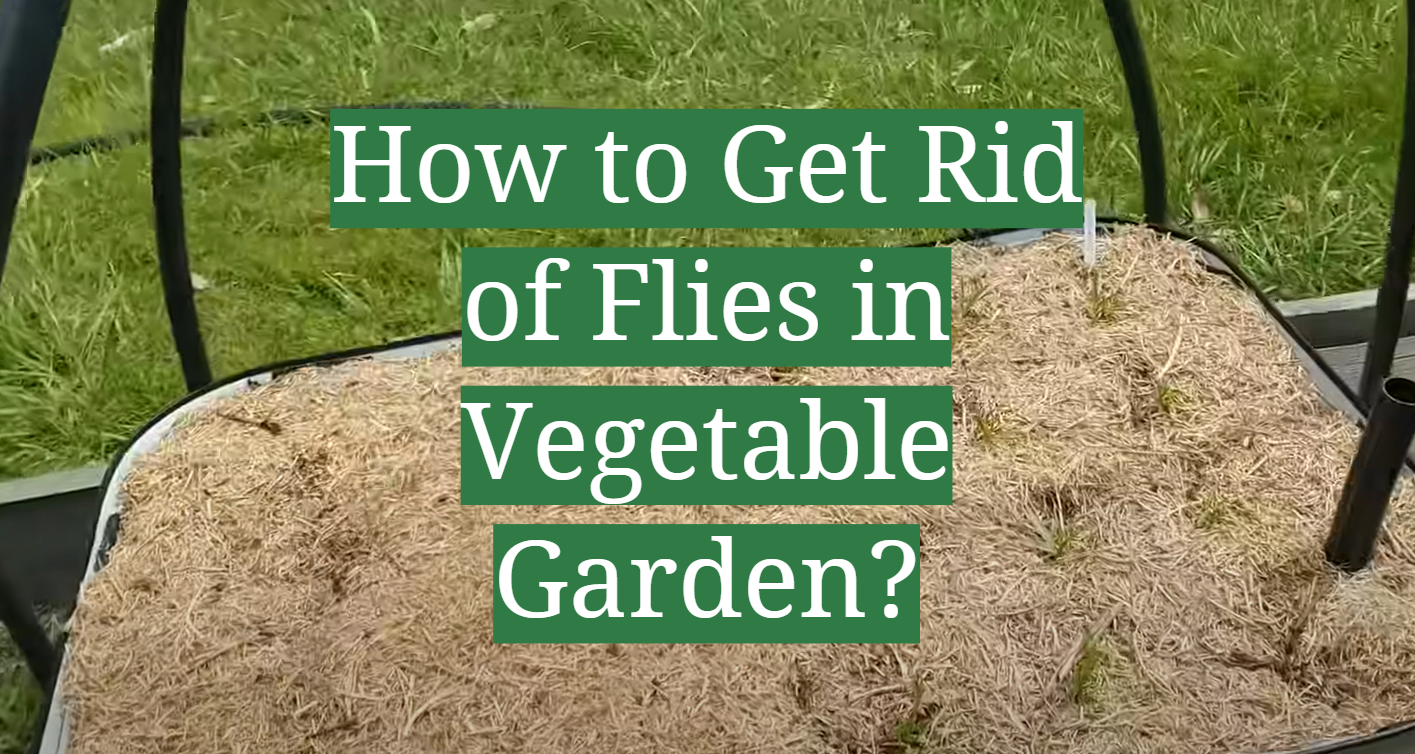
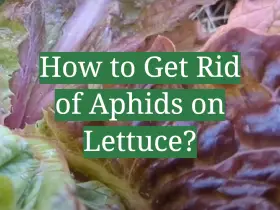
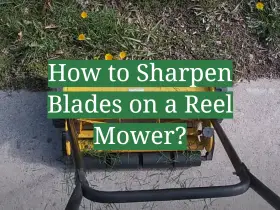
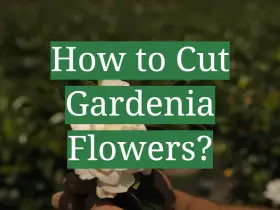
Leave a Reply
View Comments